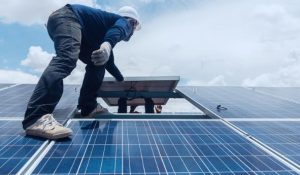When Is It Time to Replace Your Solar Panels?
Solar energy has revolutionized how we power our homes and businesses, offering a cleaner, more sustainable alternative to fossil fuels. However, even the most advanced solar panel systems don't last forever. Knowing when to replace your solar panels ensures your energy system remains efficient, cost-effective, and reliable. Let's break down the facts with confidence and clarity, American-style.

Performance Decline: The Telltale Sign
The efficiency of solar panels doesn't drop off a cliff overnight; it's a gradual decline. On average, solar panels lose about 0.5% to 1% of their efficiency per year. This means after 25 years, which is the standard warranty period for most panels, they could be operating at 75% to 87.5% efficiency. If you're noticing higher energy bills or reduced output from your system, it's a solid indicator that your panels might be underperforming.
Physical Damage: A Clear Indicator
Solar panels are built to endure, but they're not indestructible. Severe weather conditions like hail storms, heavy snowfall, or even persistent debris can cause physical damage that impacts their functionality. Cracked panels or visible wear and tear can compromise the system's efficiency and are clear signs it might be time for an upgrade.
Technological Advancements: Out with the Old, In with the New
Solar technology is advancing rapidly. Panels manufactured a decade ago are not as efficient as today's models. If your system is over 20 years old, it's operating on outdated technology that's less efficient and potentially more costly in the long run. Upgrading to newer, more efficient panels can significantly boost your system's output and reduce your energy bills.
How often to replace solar panels? This question pops up as owners assess the lifespan and efficiency of their solar energy systems. With advancements in solar technology, the answer isn't straightforward but depends on several factors, including performance, physical condition, and technological updates.
Making the Call: Replacement Time
Deciding to replace your solar panels is a significant decision that should be based on performance metrics, physical inspection, and a cost-benefit analysis of upgrading to newer technology. If your panels are nearing the 25-year mark, showing signs of physical damage, or if you're paying more for electricity than you did in the past, it might be time to consider an upgrade.
Proactive Steps to Prolong Lifespan
While eventual degradation is inevitable, there are steps you can take to maximize the lifespan and efficiency of your solar panels:
- Regular Maintenance: Keeping your panels clean and free from debris can prevent unnecessary efficiency losses.
- Routine Inspections: Have a professional inspect your system periodically to identify and address any issues before they become major problems.
- Stay Informed: Keep an eye on advancements in solar technology to ensure your system remains competitive and efficient.
Final Thoughts
Solar panels are a long-term investment in your property and the planet. Recognizing when it's time to replace your solar panels can help you maintain an efficient, cost-effective energy system. Pay attention to the signs of wear, efficiency loss, and stay informed about technological advancements to make the most of your solar investment. With proper care and timely updates, your solar energy system can continue to provide clean, sustainable power for years to come.
